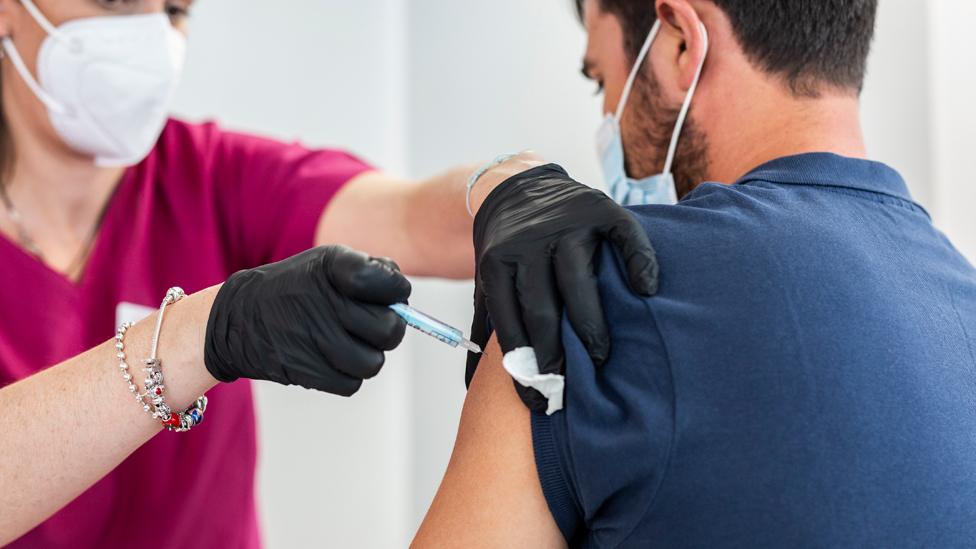Covid-19: Over-12s should be offered vaccine, says Peter Weir
- Published

A UK vaccines body has said the health benefits of vaccinating the vast majority of children is small
All children over the age of 12 in Northern Ireland should be offered a vaccine against Covid-19, former Education Minister Peter Weir has said.
He said it could reduce community transmission and school absence.
Only children with specific underlying health conditions and who are at risk of serious illness from the virus are offered the Pfizer-BioNtech vaccine.
That followed a recent review by the Joint Committee on Vaccination and Immunisation (JCVI).
However, on Tuesday the Covid-19 vaccination programme in the Republic of Ireland was extended to include 12 to 15 year-olds.
The recommendation was made to the Irish government by the National Immunisation Advisory Committee (NIAC).
Mr Weir, a Democratic Unionist Party (DUP) assembly member (MLA) said he wanted a similar option for over-12s in Northern Ireland.
"I want to see the option being given to parents here to have the same opportunities as in the Republic of Ireland," he told BBC News NI's Evening Extra programme.
"We know that if there is much greater level of vaccination this will have a positive impact in a wider societal side of things but also from an educational point of view.
"If we see large numbers of infections within society, even with low levels of hospitalisation, that's likely to have a knock-on effect in terms of disruption to education.
"So I want at least the option to be there for parents in terms of availability."
'Opportunity to opt in'
Mr Weir said the vaccination should not be compulsory but parents should be given the choice to have their children over 12 years old vaccinated.
"We know that children are very, very rarely in hospital but the whole point of what I'm saying is at least to give people the option," he said.
Mr Weir said it would be "perfectly fine" if some parents decided they did not want their children to be vaccinated.
"But I think this is about providing some level of opportunity for parents to opt in," he added.

Peter Weir said vaccinations for over-12s should not be compulsory
Mr Weir was Northern Ireland's education minister from 2016 to 2017 and again from January 2020 until he was replaced by his DUP colleague Michelle McIlveen last month.
Recently published research suggests that the overall risk of children becoming severely ill or dying from Covid is extremely low.
However, some countries like France, the Netherlands and Italy have begun to vaccinate children.
Others, such as Germany, give the Pfizer jab to children over 12 if they have existing medical conditions.
'Minimal health benefits'
In the UK, the JVCI recently recommended that the vast majority of children in the UK, who are at low risk, should be not be offered the vaccine at present.
"As evidence shows that Covid-19 rarely causes severe disease in children without underlying health conditions, at this time the JCVI's view is that the minimal health benefits of offering universal Covid-19 vaccination to children do not outweigh the potential risks," the body said.
The deputy chair of the JCVI, Prof Anthony Harnden, said the primary aim of the vaccination programme was to prevent hospitalisations and deaths.
"Based on the fact that previously well children, if they do get Covid-19, are likely to have a very mild form of the disease, the health benefits of vaccinating them are small," he said.
"The benefits of reducing transmission to the wider population from children are also highly uncertain, especially as vaccine uptake is very high in older people who are at highest risk from serious Covid-19 infection."
However, Prof Harnden also said that guidance would be kept under review as more safety and effectiveness information became available.
European regulators had previously said that heart inflammation was a "very rare" side-effect of the Covid vaccines made by Pfizer and Moderna.
While the risk was very rare it was more likely to develop in young people, the European Medicines Agency reported.
- Published19 July 2021
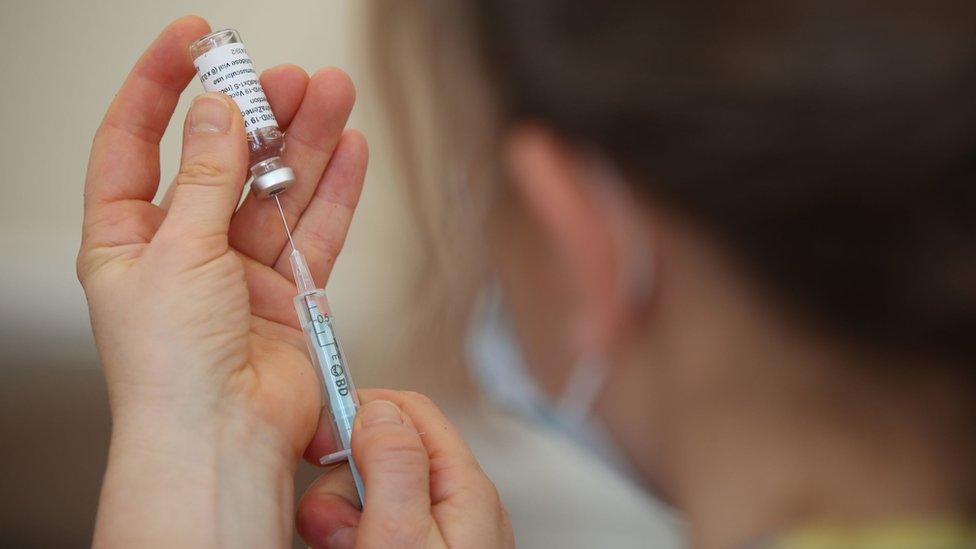
- Published29 November 2021
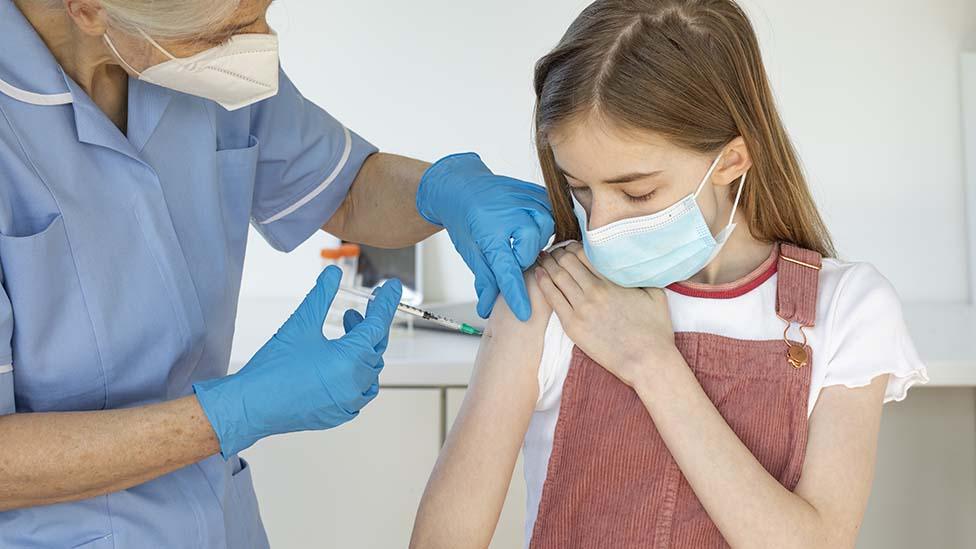
- Published27 July 2021
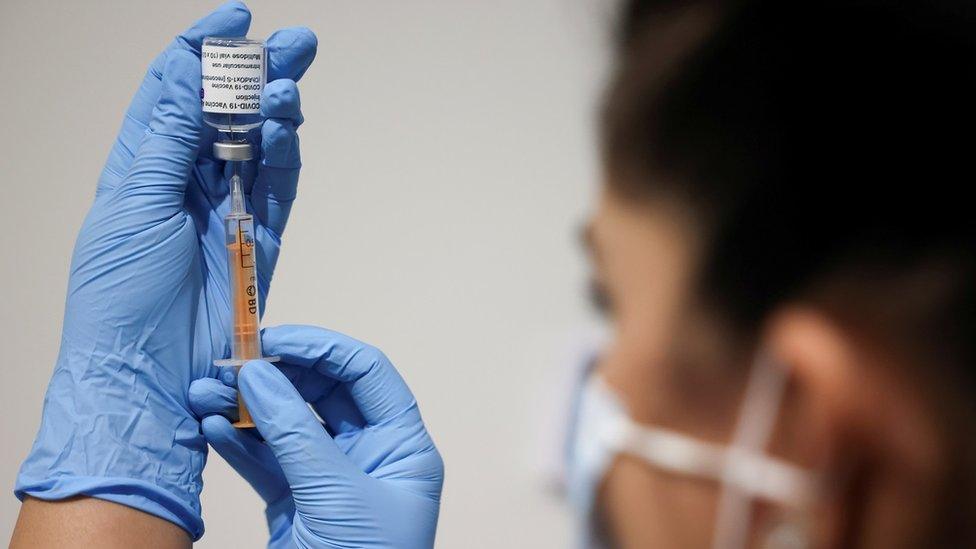
- Published9 July 2021
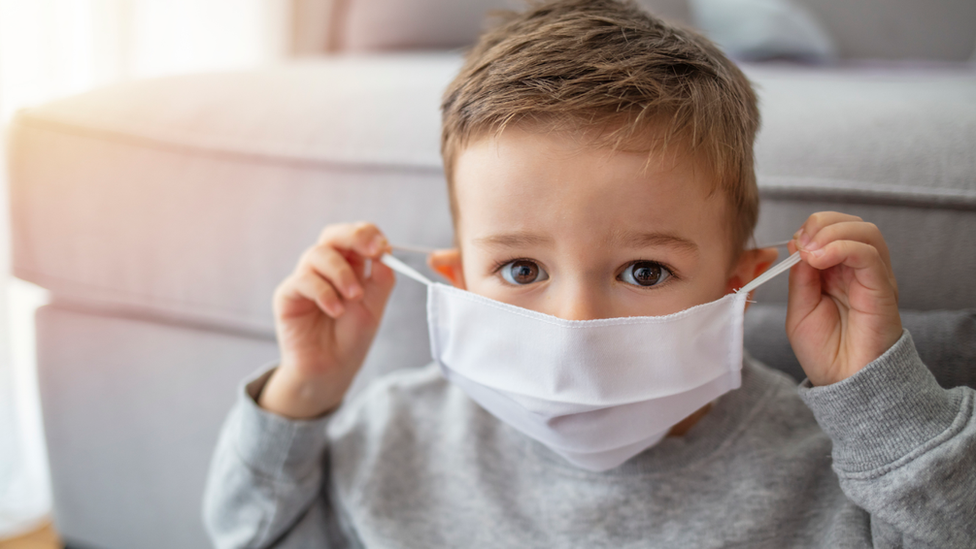
- Published9 July 2021
